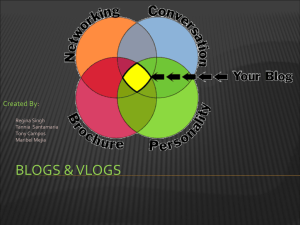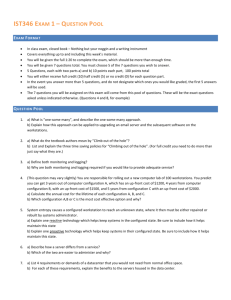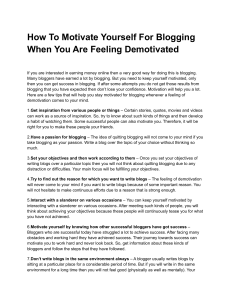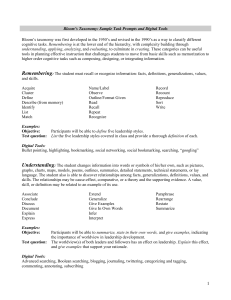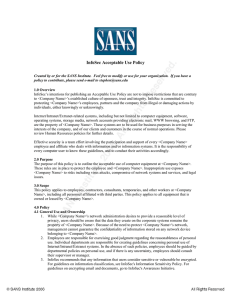Assignment 2 - Inquiry into Target Market
advertisement
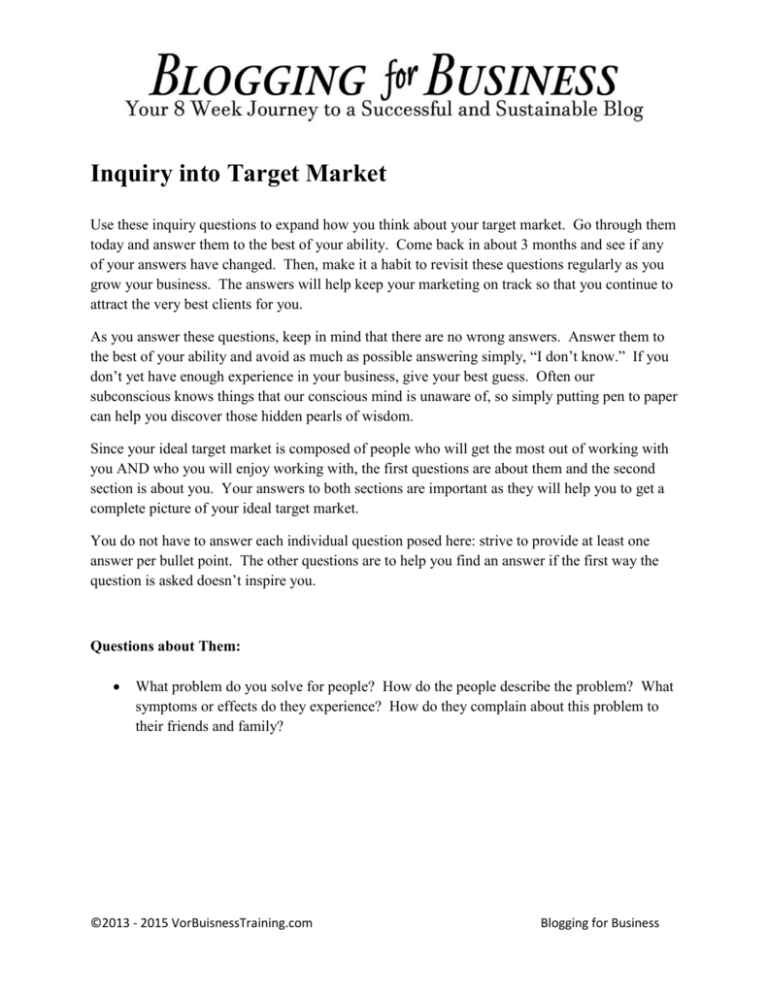
Inquiry into Target Market Use these inquiry questions to expand how you think about your target market. Go through them today and answer them to the best of your ability. Come back in about 3 months and see if any of your answers have changed. Then, make it a habit to revisit these questions regularly as you grow your business. The answers will help keep your marketing on track so that you continue to attract the very best clients for you. As you answer these questions, keep in mind that there are no wrong answers. Answer them to the best of your ability and avoid as much as possible answering simply, “I don’t know.” If you don’t yet have enough experience in your business, give your best guess. Often our subconscious knows things that our conscious mind is unaware of, so simply putting pen to paper can help you discover those hidden pearls of wisdom. Since your ideal target market is composed of people who will get the most out of working with you AND who you will enjoy working with, the first questions are about them and the second section is about you. Your answers to both sections are important as they will help you to get a complete picture of your ideal target market. You do not have to answer each individual question posed here: strive to provide at least one answer per bullet point. The other questions are to help you find an answer if the first way the question is asked doesn’t inspire you. Questions about Them: What problem do you solve for people? How do the people describe the problem? What symptoms or effects do they experience? How do they complain about this problem to their friends and family? ©2013 - 2015 VorBuisnessTraining.com Blogging for Business What secondary problems do they have? What other problems do they complain about that are related to their main problem or main thing you help them with? A disorder is a group of symptoms that affect people usually at the same time – can their problem be described as a disorder with multiple symptoms? If so, explain what that might be. What solutions have these people already tried on their own? What are the best known of the do-it-yourself solutions that they might have tried? What solutions would help them if they knew about them? What must they know and/or understand before they can understand the value of my solution? How must they see the world or their place in it? What are the pre-requisites for the solution that you offer (imagine your solution is a graduate program – what classes would they need to take before applying to your program?). ©2013 - 2015 VorBuisnessTraining.com Blogging for Business What questions are these people asking about their problem that you can help them answer? What keeps them up at night? What don’t they know that they don’t know about their problem (what can you educate them about)? How does what you offer help these people with their problem? What are the benefits they receive from working with you? What can you help them do that they can’t do on their own? Questions about You: What kind of people do you most enjoy working with? What characteristics do they share? What kind of people do you not like to work with? ©2013 - 2015 VorBuisnessTraining.com Blogging for Business What special skills or experience do you bring to your coaching clients? What are your unique gifts that make you different than other coaches offering the same type of service? What are your personal strengths and weaknesses, understanding that which is which will be defined by the prospective client not by you (for example, your ideal client will see your “in your face” attitude as a strength, whereas clients who are not ideal will see it as a weakness). Once you have answers to these questions, you can further refine your ideal target market with demographics. Demographics are things like age, gender, marital status, and income. But don’t start there. Start with these inquiry questions first so you can begin to get a picture of who you want to work with from the psychology of their problem, how they see those problems, and how their problems relate to who they are as a person, first. ©2013 - 2015 VorBuisnessTraining.com Blogging for Business

